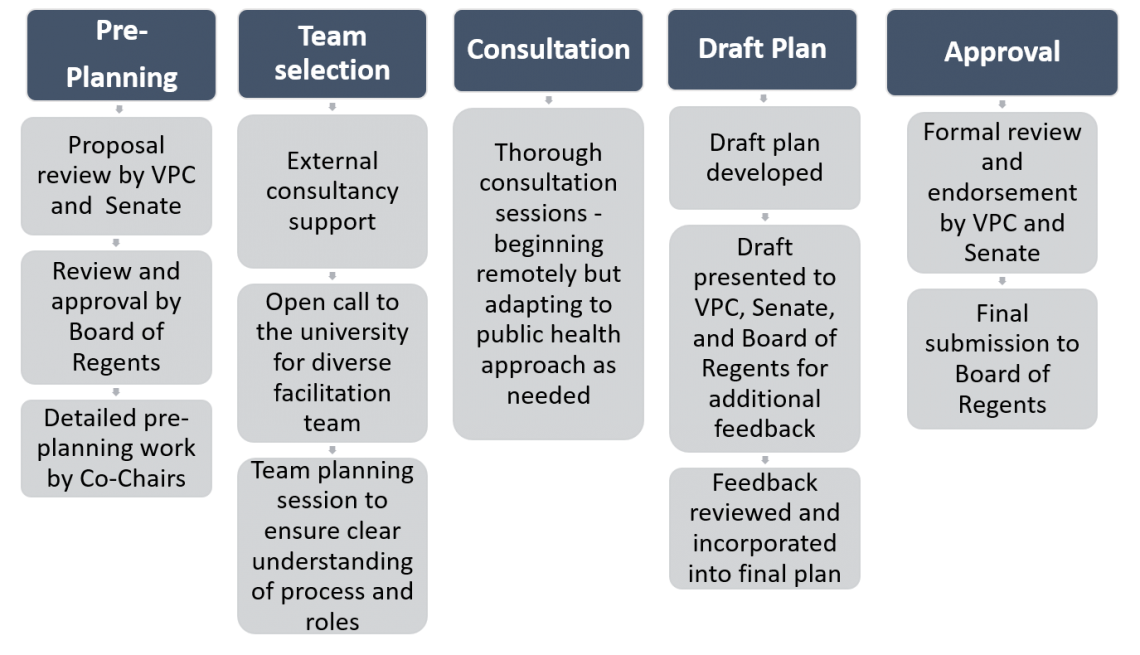Strategic planning process
The 2021-2026 strategic planning process was a highly participatory and accessible process to engage all members of our community in defining our shared vision for the future.
Individuals with a diverse range of perspectives and knowledge need to have an opportunity to provide valuable input, and feel safe and heard in doing so. Feedback was collected and collated in a respectful and thoughtful manner.
Given the COVID-19 pandemic and the challenges this presents, the following process elements are proposed, however flexibility and adaptation will be important throughout this process.

Stage 1: Pre – Planning
Following review by Vice-Presidents Council (VPC) and Senate, and formal submission to the Board of Regents, pre-planning will include detailed work on preparing the Request for Proposals (RFP) for an external consultant, developing the process for an open call for individuals interested in participating on the facilitation team, preparing the terms of reference for the facilitation team, and preparing for the process to start.
Stage 2: External and Internal Teams
Support from an external consultancy, locally present, familiar with Memorial’s role within the Province, and skilled in strategic planning, will be selected based upon the RFP process. The consultant will gather data, record and consolidate input from planning discussions, prepare draft documents, and otherwise assist the planning process.
An internal facilitation team will also be used to guide the process. This team will be co-chaired by Dr. Ian, Sutherland, dean, School of Music and Ms. Emily Wooley, manager, policy and planning, Department of Human Resources. The facilitation team will be approximately 10-15 individuals, selected through an open call process and will be diverse in its composition.
Stage 3: Consultation
Input and perspectives will be gained through a robust consultation process. Starting remotely (and possibly fully remotely), a series of forums will be held. Consultations will take many forms including, but not limited, to surveys and virtual meetings/sessions. Consultation will occur with internal faculty, staff, and students, and also with external stakeholders such as members of the Government of Newfoundland and Labrador, diverse community groups and representatives, and alumni.
Stage 4: Drafting the Plan
Based upon the contextual information and views gathered through consultations, a draft plan will be developed and presented to the facilitation team. The draft plan will then be shared with key groups such as Deans’ Council, Senate, Senior Academic and Administrators Group (SAAG), Vice-Presidents Council, and the Board of Regents as a secondary consultation process.
Specifically, sharing the draft plan will enable the facilitation team to gauge the feasibility of the plan, priority of items, and the overall completeness of items and commitment to its vision. This stage may also include testing the plan with key external stakeholders. Based upon this work, a final draft will be prepared.
Stage 5: Approval
Once finalized, the plan will be submitted to Vice-Presidents Council and Senate for endorsement. It will then be formally submitted to the Board of Regents for final review and approval. A detailed communications and implementation plan will also be submitted during this stage.